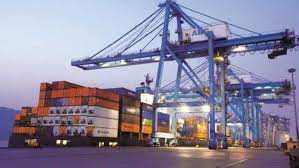New Tariff Guidelines, 2021:

The Ministry for Ports, Shipping & Waterways has announced the new Tariff Guidelines, 2021 for the Public-Private Partnership (PPP) projects in Major Ports.
- The new guidelines have been released in consonance of Major Port Authority Act, 2021.
New Guidelines:
- Existing Scenario: The PPP concessionaires at Major Ports were constrained to operate under the stipulations of guidelines (by Tariff Authority for Major Ports (TAMP)).
- On the other hand, private operators/PPP concessionaires at non-major ports were free to charge tariffs as per market conditions.
- Concessionaire can be a person or company that has the right to sell a product or to run a business in PPP projects.
- TAMP stands abolished according to the Major Port Authority Act, 2021.
- Transition to Market-linked Tariffs: Currently, major port’s PPP concessionaires handle around 50% of the total traffic handled by all the major ports in India.
- The new guidelines allow the concessionaires at major ports to set tariffs as per market dynamics.
Major Port Authority Act, 2021:
- In February 2021, Parliament passed the Major Port Authorities Bill, 2020, which seeks to provide greater autonomy and flexibility to major ports in the country and professionalise their governance.
- It has granted port authority the power to fix tariffs, which will serve as a reference tariff for purposes of bidding for PPP projects.
- It imparts faster and transparent decision making benefiting the stakeholders and better project execution capability.
- In the Landlord Port Model, ports own the land and basic infrastructure, with operations and management being leased out to private players.




